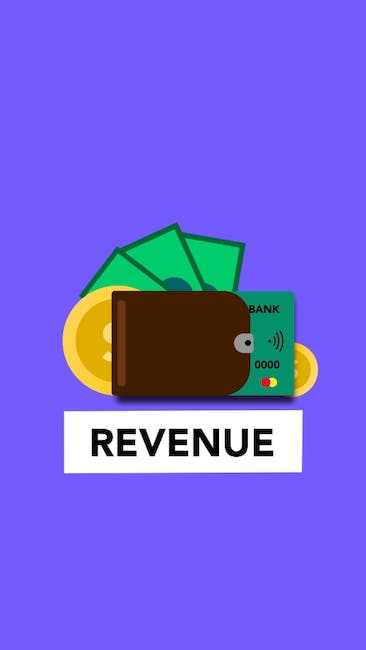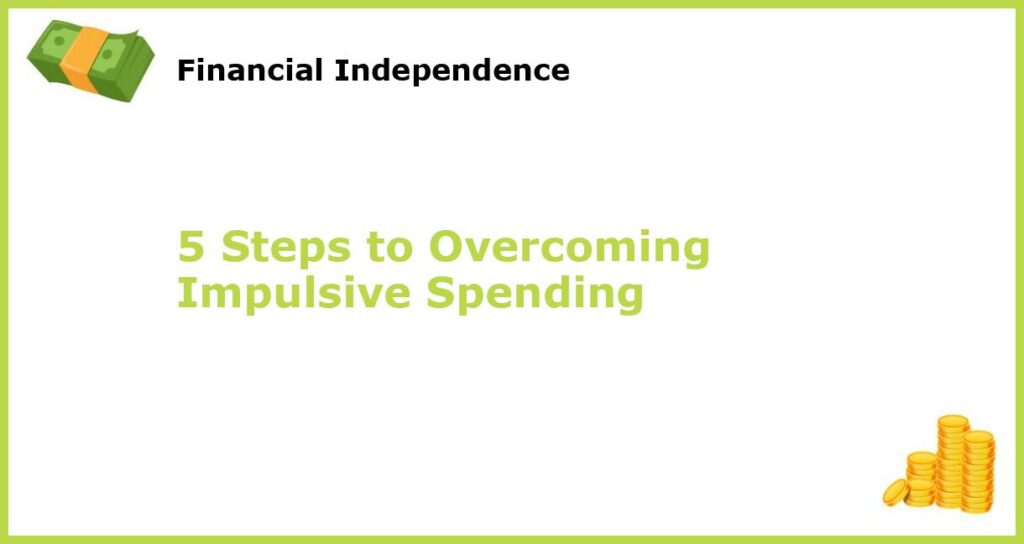Welcome to the wise advice on controlling impulsive spending. We all know that impulsive buying can quickly spiral out of control and leave you with a pile of debt. However, taking small steps to curb your spending habits can go a long way in helping you identify triggers, plan better, and ultimately lead to a healthy savings account. Follow these 10 steps to take control of your finances and overcome impulsive spending.
Step 1: Identify Triggers

Identifying triggers is crucial to understanding why you are overspending. Analyzing your past impulsive purchases and trying to determine what prompted them can help you avoid making the same mistake again. Triggers can be anything: boredom, sadness, loneliness or even excitement. Identifying what makes you spend money is the first step towards taking control of your shopping habits.
For example, if you always feel like shopping after having an argument with your partner, try and take a walk or listen to music instead. Or, if binge shopping is associated with social media, limit your screen time or unfollow the brands that tempt you the most.
Step 2: Create a Budget

A budget tells your money where to go, rather than wondering where it went. Before you start budgeting, consider tracking your spending for a month to give you a realistic idea of your expenses. List out your monthly expenses, such as rent, utilities, groceries, and gas, and then set realistic limits for each category. Add a discretionary category for things like eating out and shopping, but be sure to limit how much you can spend in that category.
Once you have your budget set up, consider tracking your expenses daily or weekly. This keeps you mindful of your spending and helps you adjust if you are overspending a category. The more you are aware of your spending, the more you will be able to adjust and overcome the habit of impulsive spending.
Step 3: Practice Mindful Spending

Mindful spending is the process of intentionally pursuing what you value and want to spend money on. Before making a purchase, consider whether you really need the item or are buying it because you want it. If it is tempting to purchase, take a deep breath, pause for a few minutes, and think before you buy. Being mindful of your spending habits can help keep you in control of your finances.
One great strategy is making a list of items you need before going to the store. When you are tempted to buy something not on the list, give yourself a moment to think it over. Ask yourself if it is worth postponing buying the items on your list. By doing so, you are making mindful decisions rather than making impulsive ones.
Step 4: Use Cash or Debit Instead of Credit

Using cash or a debit card will help you stick to your budget and keep your spending in check. It is easy to overspend with a credit card because it does not feel like real money. By paying in cash, you can tangibly feel how much money you are spending, helping you stay on track and within budget. Remember, it is always better to spend money you have on hand rather than using credit, which leads to high-interest rates and unnecessary debt.
Step 5: Find Alternative Coping Mechanisms

Many people use shopping as a means to fulfill emotional needs. Instead of shopping your emotions away, find alternative ways to treat yourself. Exercise, meditation, reading, or spending time outdoors are all healthy ways to cope with stress and anxiety. The more you can identify healthy coping mechanisms, the less you will rely on shopping to help you feel better.
You could also find activities that don’t put a dent in your budget like organizing your home or simply starting a puzzle. These activities can help occupy your mind and keep you from continuously wanting to shop.
Step 6: Plan Your Purchases

When you have a plan for your spending, it is less likely to be impulsive. Make a list of items you need to purchase before going shopping, and stick to that list as much as possible. This tactic is especially important at the grocery store, where we tend to get lured in by sales and promotions. By planning your purchases, you also limit any hassles, anxieties, or regrets that you may have later on.
Step 7: Wait Before Buying

The urge to buy something may be strong, but give yourself at least 24 hours to think it over. Ask yourself if you can afford the purchase, if it aligns with your values, and if it is genuinely essential. Give yourself time to review your budget and assess other priorities. Waiting a day or two can prevent your decision from being emotionally driven and instead more methodical and practical.
Step 8: Shop With a Friend
Friends can be great at holding us accountable for our actions. If you have a friend who is financially responsible, ask him or her to accompany you when you go shopping. They can help you approach purchases with a more objective eye, ensuring you are staying within budget and not making impulsive decisions. Next time you go shopping alone or binge online, you will have your friend’s voice echoing in your head, making you reconsider your decision.
Step 9: Avoid Temptation
Take steps to resist temptation by avoiding the stores or websites that prompt you to overspend. Unsubscribing from email newsletters, deleting apps or unfollowing social media platforms can help minimize the temptation to shop seamlessly, making you more conscious and intentional with your spending decisions.
Another way to indulge your hobbies and passions without spending money is to explore free cultural events and classes or use your public library. An excellent example is the amount of free books, e-books, and audiobooks available for download. These resources are just as good as paying for them, helping you save money in the long run.
Step 10: Reward Yourself
Finally, don’t forget to reward yourself for small victories in sticking to your budget. Just be sure to prioritize rewarding yourself with items that are within your budget. You can treat yourself with a cheap snack or a relaxing activity you have been postponing. Find ways to remind yourself of your achievements, such as online goal trackers, and encourage yourself to keep up the good work. The more you reward yourself, the more intrinsically motivated you are to stick to good spending habits.







